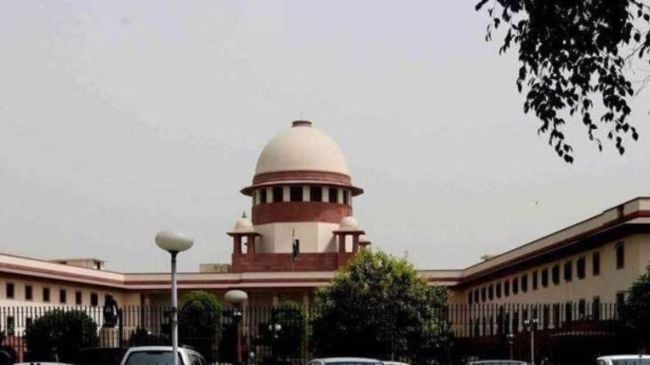Opinion Supreme Court’s warning must be heeded: Civil disputes cannot become criminal cases
With the Supreme Court’s stern rebuke and clear directives, the Uttar Pradesh police is now expected to exercise greater caution while handling civil disputes
 SC to hear on Apr 16 matter related to tree felling in Hyderabad's Kancha Gachibowli forest (Source: Express Photo)
SC to hear on Apr 16 matter related to tree felling in Hyderabad's Kancha Gachibowli forest (Source: Express Photo) It has been the settled principle in law that civil disputes should not be converted into criminal ones, until and unless there’s a clear element of crime. In Uttar Pradesh, this practice has now been called out by the Supreme Court, while terming it as a complete breakdown of the rule of law.
On April 7, while hearing Debu Singh and Anr vs State of Uttar Pradesh, the Court came down heavily on the state and its police officers. Petitioners Debu Singh and Deepak Singh face charges of criminal breach of trust, criminal intimidation, and criminal conspiracy. A bench led by Chief Justice Sanjiv Khanna remarked. “This is wrong! What is happening in UP? Everyday civil suits are being converted to criminal cases. That’s not correct! This is an absolute breakdown of the rule of law!”
Reportedly, the bench also took strong objection to the actions of the Investigating Officer concerned and verbally remarked that contempt proceedings against him can be initiated. While doing so, the bench referred to Sharif Ahmed and Ors vs State of Uttar Pradesh, the guidelines of which underline the importance of a chargesheet to take cognisance of an offence by the concerned Magistrate. It held that the chargesheet must contain clear and complete entries of all the columns to enable the concerned court to understand what crime has been committed by the accused and what is the material evidence.
In Debu Singh, the Supreme Court ordered the DGP of Uttar Pradesh and the IO of the case concerned to file an affidavit clarifying their stance and stating whether compliance was made in accordance with the directions issued in Sharif Ahmed.
This is not the first time that the courts have cautioned the state. In Rikhab Birani vs State of Uttar Pradesh, the Supreme Court flagged concerns over the “practice” of converting civil disputes into criminal cases in various states. The court was hearing a petition which sought the quashing of charges against the accused under Sections 420, 406, 354, 504, 506 of the erstwhile Indian Penal Code. Strangely, the Allahabad High Court refused to quash the case and observed that “it cannot be said that no offence is made out against the applicant(s).”
In another case, Randheer Singh vs State of Uttar Pradesh, the Supreme Court dismissed criminal proceedings against a property purchaser and held that a dispute of civil nature had been given a different, criminal colour, and that the authorities must gauge if the essential ingredients of an offence are present or not. And in Jay Shri vs State of Rajasthan, the Supreme Court said that efforts to settle civil disputes by applying pressure through criminal prosecution must be deprecated. A division bench of Justices Sanjiv Khanna and Dipankar Datta observed that the mere violation of a contract does not amount to an offence of cheating or breach of trust as provided under the IPC, unless the key ingredients are shown to be there — like fraudulent or dishonest intention.
Finally, in Syed Yaseer Ibrahim vs State of Uttar Pradesh, where a division bench led by Justice DY Chandrachud observed that the continuation of proceedings would amount to abuse of process, the Court found that neither the FIR nor the chargesheet contained any reference to the essential requirements underlying Section 420 (cheating and dishonest inducement). Hence, the continuation of the prosecution “against the appellant would amount to an abuse of the process where a civil dispute is sought to be given the colour of a criminal wrong.’
With the Supreme Court’s stern rebuke and clear directives, the Uttar Pradesh police is now expected to exercise greater caution while handling civil disputes. The Court’s reference to Sharif Ahmed serves as a crucial reminder that chargesheets must be meticulously prepared, ensuring that only genuine criminal offenses proceed to trial. The affidavits filed by the DGP and the investigating officer will reveal whether the state is serious about complying with judicial mandates. Otherwise, it risks facing contempt proceedings and monetary penalties. For now, the ball is in the UP police’s court — will they course correct, or will the apex court be forced to take stricter action? The message is clear: The practice of turning civil feuds into criminal cases must end — and the Supreme Court is watching.
The writer is a practising advocate at the Allahabad High Court






